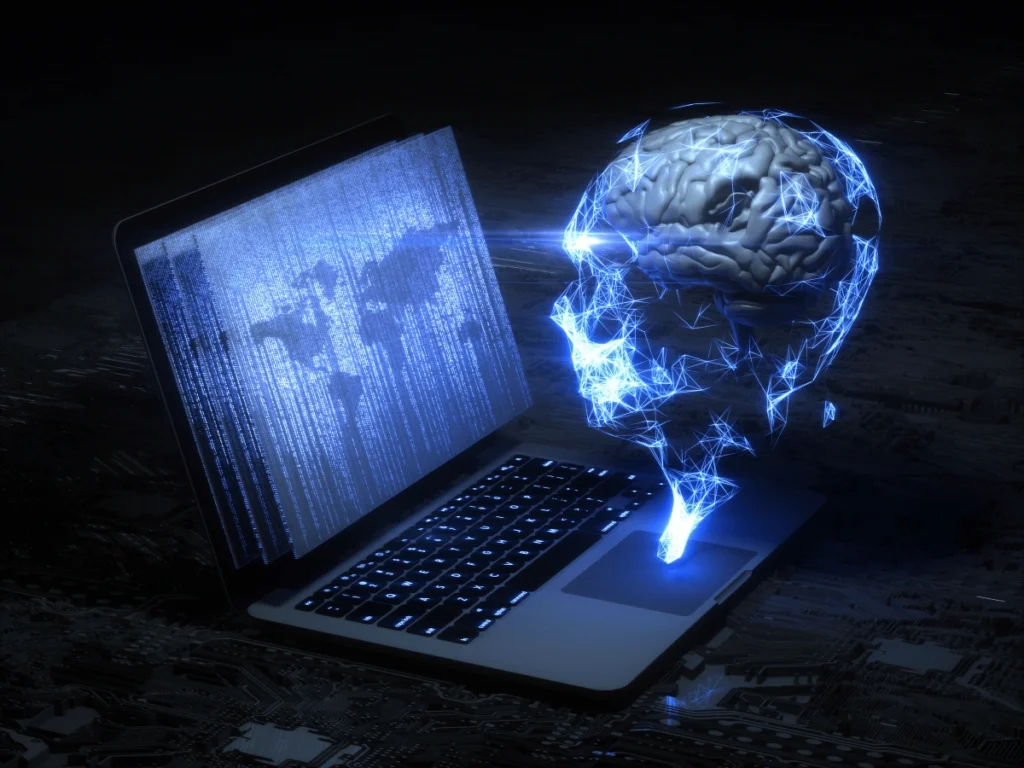
Artificial Intelligence

Artificial Intelligence

Type Of Artificial Intelligence (AI)
Artificial Intelligence activities fall into three general categories
- Narrow Artificial Intelligence
- General Artificial Intelligence
- Artificial Superintelligence (ASI)
Narrow AI, called susceptible AI, refers to synthetic intelligence systems designed to carry out unique responsibilities or remedy precise troubles within a confined scope. Unlike well-known AI, which aspires to replicate the full range of human cognitive competencies, narrow AI is specialized and optimized for unique capabilities. These systems operate beneath predefined constraints and are especially effective within their exact regions however do not possess the power to generalize or adapt to obligations outside their specialized area. Narrow AI systems depend closely on system studying strategies to feature. They are educated on big datasets to recognize styles and make selections based on statistical evaluation. For example, a slender AI gadget designed for medical diagnostics would possibly examine clinical pics to locate anomalies, however, it would not be able to engage in popular medical reasoning or expertise broader factors of patient care past its precise education.
General AI, also referred to as robust AI or Artificial General Intelligence (AGI), refers to a theoretical form of artificial intelligence that possesses the ability to apprehend, analyze, and follow information throughout a huge range of obligations at a degree akin to human cognitive talents. Unlike narrow AI, which plans for precise applications and operates within defined constraints, trendy AI aims to showcase a vast and adaptable intelligence comparable to human questioning and reasoning. In realistic phrases, fashionable AI might be capable of carrying out numerous capabilities such as reasoning, hassle-fixing, making plans, learning from experience, and know-how of complicated language and emotions in a manner that is similar to or surpasses human capabilities. For example, it may manage a commercial enterprise, create art, conduct clinical research, or interact in social interactions with a deep understanding of numerous topics and contexts.
Applications of AI (Artificial Intelligence)
AI is revolutionizing healthcare utilizing enhancing diagnostics, personalizing treatment, and optimizing administrative responsibilities.
- Diagnostics:
AI algorithms analyze medical images to stumble on situations including most cancers or diabetic retinopathy with high accuracy. - Personalized Treatment:
AI-driven structures analyze affected person statistics to endorse personalized treatment plans. - Drug Discovery:
AI hastens drug discovery by predicting the effectiveness of compounds and identifying potential applicants for scientific trials.
In the economic area, AI improves choice-making, change management, and customer support.
- Algorithmic Trading:
AI structures execute trades based totally on market records and tendencies, often outperforming human investors. - Fraud Detection:
AI fashions become aware of fraudulent activities by analyzing transaction patterns and detecting anomalies. - Customer Service:
AI-powered chatbots and virtual assistants provide instant support and manipulate customer inquiries.
AI complements the retail enjoy through personalization and operational performance.
- Recommendation Systems:
AI algorithms analyze consumer behavior to suggest merchandise tailor-made to character choices. - Inventory Management:
AI predicts calls for patterns and optimizes stock levels, lowering waste and enhancing delivery chain efficiency. - Customer Insights:
AI gear analyzes consumer remarks and critiques to provide actionable insights for enhancing services and products.
AI is reworking transportation by enhancing protection, efficiency, and convenience: Autonomous Vehicles:
Self-driving cars use AI to navigate roads, locate limitations, and make actual-time selections.
Traffic Management: AI optimizes site visitor flow and reduces congestion through clever visitor signals and predictive analytics.
Logistics: AI enhances path-making plans and delivery schedules, improving delivery chain efficiency.




Benefits of AI:
-
Efficiency and Automation:
Efficiency and Automation: AI can automate repetitive and mundane duties, drastically growing productivity and performance in various industries. For instance, in manufacturing, AI-driven robots can perform assembly line duties faster and greater than human people. Automation of administrative obligations, along with data access and scheduling, can free up human assets for more complicated and creative obligations.
-
Enhanced Decision-Making:
AI systems can examine sizeable amounts of data quickly and accurately, imparting precious insights that resource in selection-making. For instance, in finance, AI algorithms can examine market traits and expect stock movements, assisting investors in making informed choices. In healthcare, AI can help analyze patient information to pick out capacity fitness problems and advocate remedy options.
-
Personalization:
AI enables the introduction of customized studies employing reading person alternatives and behaviours. For instance, recommendation engines used by streaming offerings like Netflix or e-trade systems like Amazon recommend merchandise or content material primarily based on character alternatives, enhancing user delight and engagement.
-
Support for Scientific Research:
AI hastens medical research by reading complex datasets, simulating experiments, and identifying patterns that might not be obvious through conventional techniques. In fields such as weather science, AI can model weather trade scenarios, assisting in the development of mitigating its outcomes.
-
Improved Accessibility:
AI can improve accessibility for people with disabilities. For instance, speech reputation and natural language processing technology can help people with visible or listening impairments. AI-driven equipment can offer real-time translation, generate descriptive text for pictures, and facilitate verbal exchange for people with speech impairments.In precis, AI gives several advantages, which include extended performance, better selection-making, personalised stories, and improvements in diverse fields. While there are demanding situations and ethical issues associated with AI, its capability to power nice change and innovation is sizeable, shaping the destiny across various sectors.


Challenges and Ethical Considerations (Ethical Considerations)
-
Data Privacy:
AI frequently relies on sizable amounts of private statistics to function successfully, elevating big privacy issues. The collection, storage, and analysis of personal records can lead to troubles associated with consent, data security, and misuse. Implementing robust statistics safety measures and ensuring transparency approximately how facts are used is crucial for keeping consumer privacy.
-
Bias and Fairness
AI systems can perpetuate and even exacerbate existing biases found in training data. If records used to train AI models reflect historical biases—which include those related to race, gender, or socioeconomic popularity—the AI gadget might also make biased decisions that fortify those inequalities. Ensuring equity in AI includes addressing these biases and developing algorithms that make equitable decisions across various corporations.
-
Job Displacement
The automation of obligations through AI can displace jobs and disrupt industries. While AI can create new opportunities, it can also result in enormous job losses in positive sectors. Addressing the impact on employment requires proactive measures inclusive of reskilling applications, groups of workers making plans, and guidelines that help workers transition to new roles.
-
Accountability
Determining responsibility for decisions made by AI structures can be challenging, specifically whilst those choices have enormous impacts on people or society. The “black container” nature of many AI models, in particular deep mastering algorithms, could make it difficult to understand how selections are made. Ensuring transparency in AI approaches and creating mechanisms for duty are important for building acceptance as true with and addressing grievances.




The Future of AI:

AI and the Workforce:
The integration of synthetic intelligence (AI) into the staff is transforming industries via automating repetitive tasks, improving decision-making, and fostering innovation. AI structures, from devices gaining knowledge of algorithms to advanced robotics, are more and more capable of acting complex features formerly reserved for human beings, inclusive of statistics analysis, customer service, and even innovative processes. This shift is reshaping activity roles, requiring people to adapt by acquiring new competencies and embracing lifelong learning.
AI in Everyday Life:
Artificial intelligence (AI) has seamlessly woven itself into the material of everyday lifestyles, revolutionizing how human beings engage with technology and manipulate everyday tasks. From virtual assistants like Siri and Alexa that help with scheduling and information retrieval to customized guidelines on streaming offerings and online purchasing platforms, AI enhances comfort and performance. In healthcare, AI-pushed diagnostics and predictive gear improve patient care and streamline clinical tactics. In transportation, AI contributes to advancements in navigation and independent cars, making tours safer and more green.
Ethical AI Development:
Ethical AI development specializes in creating artificial intelligence systems that perform in a manner consistent with moral ideas and societal values. This entails ensuring that AI technology is designed and implemented with transparency, fairness, and duty in mind. Developers and enterprises ought to deal with issues such as bias in algorithms, records privacy, and the ability for misuse. Ethical AI also emphasizes the significance of inclusivity and the consideration of diverse views to keep away from reinforcing present inequalities.
AI and Global Challenges:
Conclusion:
Artificial Intelligence is a transformative era with the ability to reshape each element of our lives. From improving healthcare to revolutionizing transportation, AI gives several blessings however provides challenges that need to be addressed. As we navigate the future of AI, it's miles essential to embody innovation even making sure moral development and equity get the right of entry. By knowing the competencies and implications of AI, people and organizations can harness its energy to force progress and create a better destiny for all. In conclusion, synthetic intelligence (AI) stands at the vanguard of technological development, offering transformative capacity across diverse sectors, from enhancing normal convenience to addressing essential international demanding situations. Its competencies in automating responsibilities, magnifying decision-making, and personalizing stories highlight its massive effect on current life. However, the mixing of AI into society additionally brings forth moral issues and the need for responsible development to save biases, ensure privateness, and control the results of automation on employment. As AI continues to conform, stability among innovation and moral stewardship can be critical to harness its advantages whilst mitigating capability dangers. Embracing a considerate technique to AI's improvement and alertness might be vital in shaping a destiny in which its blessings are maximized, and its demanding situations are efficiently managed.


